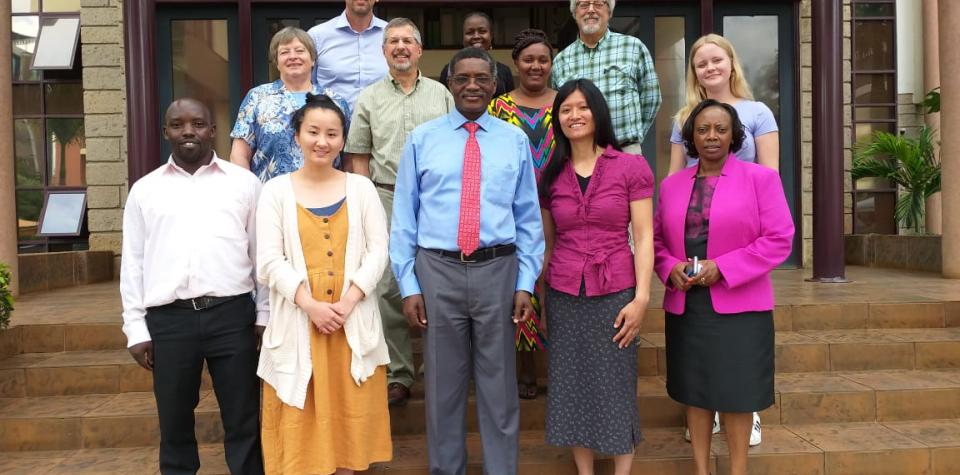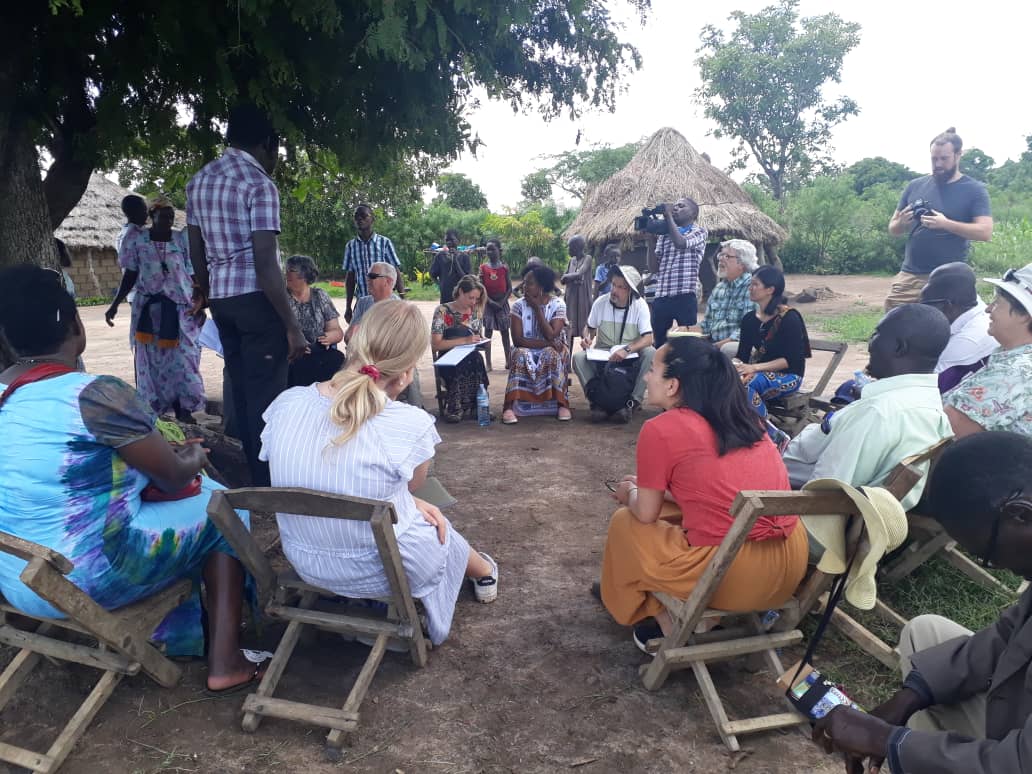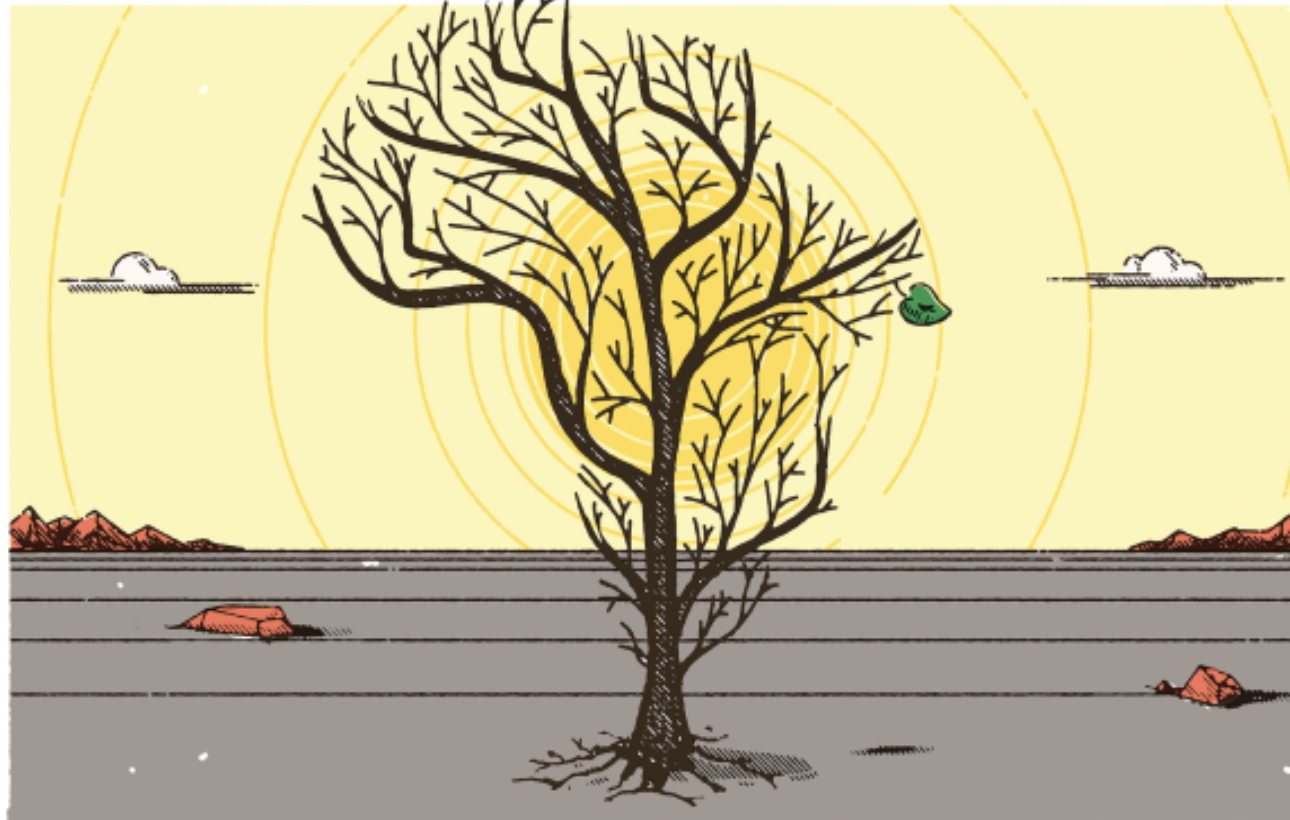The Intersectionality of Climate Change:
What I Witnessed on the Front Line of Climate Collapse.

THIS YEAR, the seasonal rains in Kenya came two months late. “Even the weatherman can’t forecast the weather,” Stephen Katama, a local shopkeeper in Nairobi, told me when I traveled to East Africa in June.
“We can’t tell the difference between the summer and winter here anymore.”
During the past two decades, rain in sub-Saharan Africa has increased in frequency and intensity, creating dangerously erratic patterns of rainfall and drought. A single day’s downpour may bring the amount of rainfall normally expected over a period of eight months, wreaking havoc on the livelihoods of countless subsistence-farming families across Kenya and Uganda.
Sub-Saharan Africa is among the regions projected to see the worst of climate change in the coming decades. I traveled with the Climate Witness Project, hosted by World Renew and the Christian Reformed Church in the U.S., to Nakuru, Kenya, and North Teso and Soroti, Uganda, to visit farming communities facing extreme shifts in weather patterns. We went to witness climate collapse on the front lines.
In North Teso, I met Pentecostal pastor Emmanuel Okwalinga. Using the biblical text on the groaning of God’s children (Exodus 23:23-25), Okwalinga recalled last year’s drought. Farmers went to bed hungry, stayed awake all night, then rose weak with hunger to cultivate their fields, he said. Chronic drought and flood patterns lead to low crop yields, which spiral into food insecurity and poverty.

While some political leaders in the U.S. continue to promote climate denial, Kenya and Uganda are taking climate justice seriously. More than 40 years ago, Kenyan activist Wangari Maathai founded the Green Belt Movement, which transformed that nation’s landscape by strategic tree planting. The National Council of Churches of Kenya has climate justice goals at the heart of its strategic plan, including “greening” churches and reforestation. And Kenya and Uganda are keeping their Paris Agreement promises. Today, Kenya runs on more than 70 percent renewable energy, compared to a stuttering 11 percent in the U.S.
Moreover, the methods of community climate resilience in Kenya and Uganda are hopeful and astounding. Rural farmers are implementing successful conservation agriculture principles (low tillage, intercropping, and mulching) to produce higher crop yields. In Nakuru, there is a resurgence of youth groups creating farm-based microbusinesses. In Kenya, women are more involved than men in small-scale farming. Increasing the capacity of these women enables them to feed their families.
In Kaberamaido, Uganda, churches host village savings-and-loan associations, through which people save money together, earning interest and giving each other loans—vital among farming communities, especially with varying climate conditions.
The per capita carbon footprint of the U.S. is among the largest on earth, while Kenya and Uganda together account for less than 1 percent of the world’s greenhouse gas emissions. Kenyan Peter Muthengi, disaster risk reduction coordinator for Anglican Development Services, told me he wouldn’t choose to be American even if he could.
He’d rather have Africa’s genuine wealth—natural resources included. He’d rather not live in a country that is economically and materially rich yet spiritually and ecologically impoverished. Muthengi reminded me of the privilege that enabled me to come from one of the richest, most influential countries in the world to see this. I became more aware of the structures of power and privilege that brought me to this place.
I traveled to Kenya and Uganda to be a Christian witness. Witness implies obligation. When someone has seen firsthand something significant, they have a responsibility to tell the truth, and Jesus calls us to be messengers of truth. Here is a truth: People are really suffering—not tomorrow, but today. Their homes and farms are ravaged. They are pulled into starvation, driven into violent conflict, and are even resorting to suicide because of climate change.

During a worship service at Christ Church, an Anglican congregation in Nairobi, Rev. Linda Ochola-Adolwa preached that civil society is a contested space, not a neutral one.
She challenged us to faithfully engage the places we inhabit.
“Are we sufficiently troubled for the ways of our society?” she asked. Are we sufficiently troubled enough to respond?
The experiences of the most vulnerable among us, rather than the most visible or privileged, must directly inform policies in the U.S.—policies that must be compassionate, transformative, and comprehensive.
After all I have seen and heard, I cannot help but bear witness to these stories, to educate, and to act. Will you?
